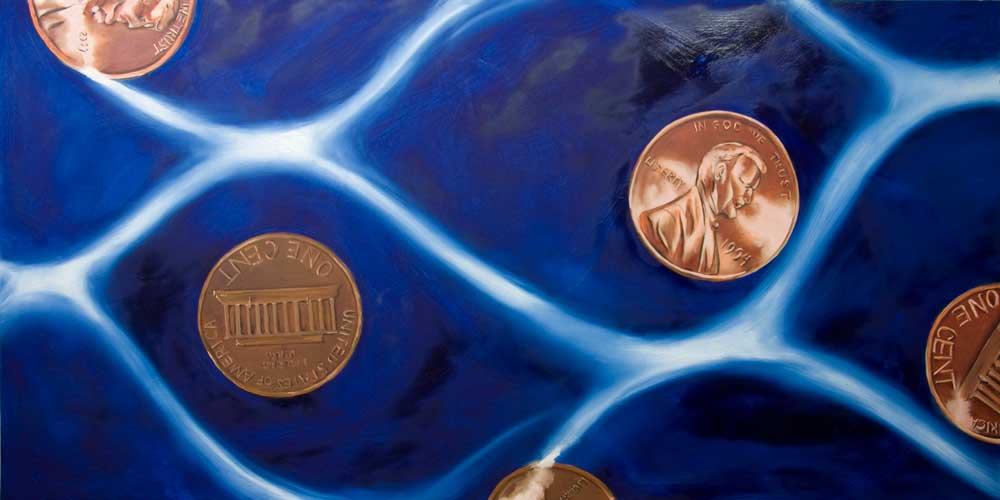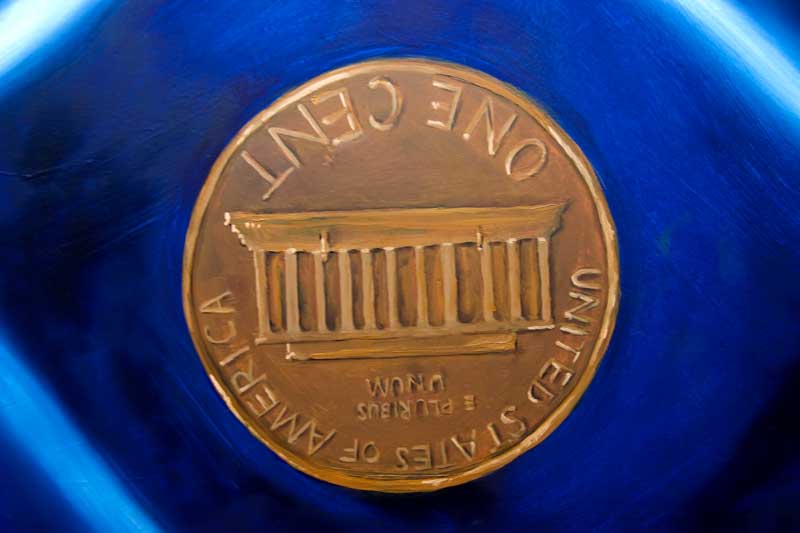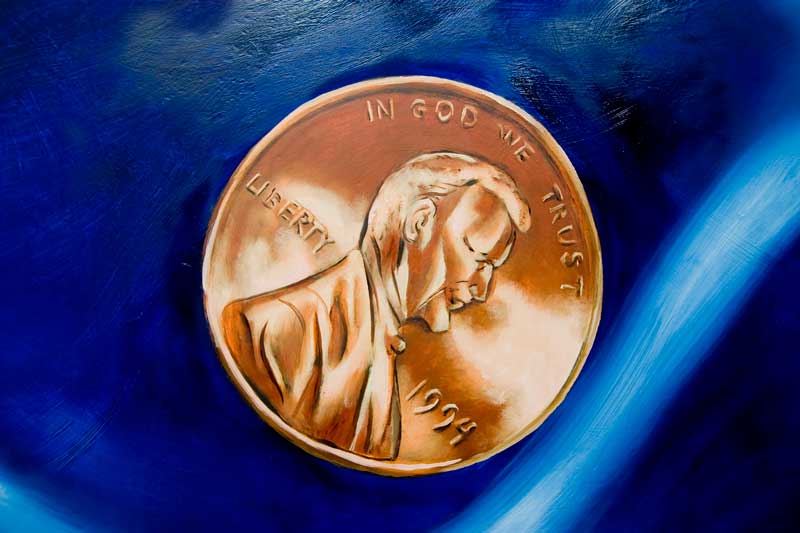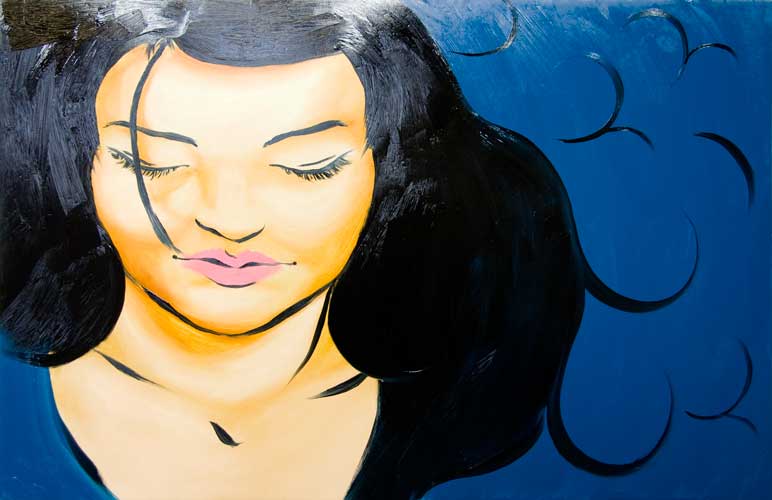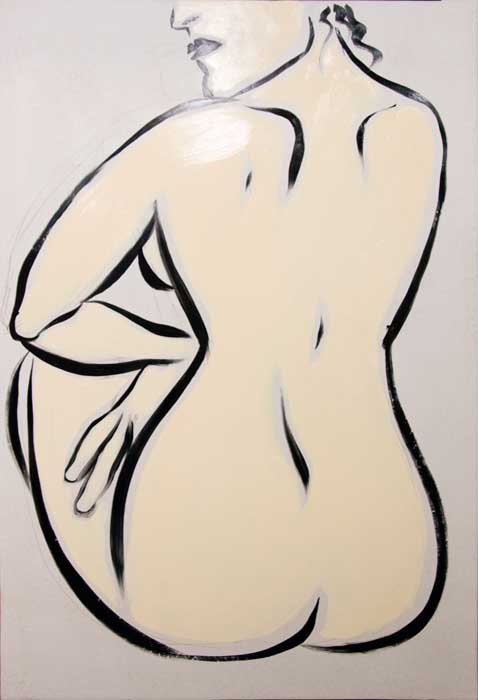I have this very clear memory from my childhood. I must've been very young, no more than eight years old. Two doors down from me there lived this older boy, Steve. He always called me Chris-O. Great kid, grew up into a great guy as far as I know. I haven't had any contact with him in years and years -- the old neighborhood, which seemed eternal, is gone now; all the families moved away. But last I heard he was a great guy.
I got it into my head for some reason that I could physically overcome Steve and his friends. I don't know why. They never bullied me or pushed me around or, as far as I remember, had much to do with me at all. I was a little kid. But I'd decided I could beat them in a fight. Nothing violent or angry about it -- just a competition. I don't know where I got this idea, but it seemed to me that if I could meditate, do a mind-meld, like Spock -- only mind-meld on myself -- then I'd become great fighter.
So I went over to Steve's front yard where he was fooling around with a couple of his friends and I challenged them. I don't remember that they were angry or mocking or anything. They went along with it. I went to the side of Steve's house, performed my self-mind-meld, came out, and promptly found myself on the ground looking up at Steve. He helped me up laughing, not at me, but with me. Like I said, he was a great kid. I demanded to try again and got flipped onto the lawn again. I asked for one last try and got it -- and landed flat on my back. Of course. Steve was a lot bigger than I was. I was a little kid.
There's no shame or humiliation associated with this memory of mine; I don't think any of the boys ever made fun of me or picked on me for it. Certainly Steve didn't. There's no anger or need for revenge here. I don't think I was very upset by my defeat, just confused. I'd done the self-mind-meld! So it's not a bad memory of mine, just a very clear one.
I'm thinking of that memory now because the series of events is wonderfully focused: I thought I could do something and I was unequivocally shown that I could, in fact, not do that thing. It wasn't a question of wanting it badly enough, or exercising my will, or practicing my technique. It was, quite simply, not possible. And this was made abundantly clear to me.
Now I'm over thirty years past that moment and I miss it. I miss the clarity of it. Because here I am and I don't know if I'm any good at anything. Every moment of my life I feel I'm forfeiting the game because I don't even know how to show up. Where's the field? What are the rules? How can I tell if I'm winning or losing? Am I on my back or not?
I have no idea.
Three years ago I decided to attempt the Mark Kostabi Method of becoming an artist. It seemed simple enough: Go to galleries and meet people there. Eventually you'll meet people with whom you have things in common. You'll make some friends or at least acquaintances. Talk with them. Bit by bit you'll find the gallerists interested in your kind of work. Once you've got something of a relationship established, you can offer to show them your work.
Three years later and I find I've gotten to know exactly three dealers well enough to ask them to visit my studio. These aren't strangers; these are people who'd stop to talk to me on the street. We know each other. We're not best friends, but we're more than casual acquaintances. I sent e-mail to two of them asking if they'd make a studio visit to see my work; and they both completely ignored me. They didn't make excuses; they didn't say they were very busy, or not taking on new artists; they didn't say anything at all. They simply pretended I'd never sent them a message.
Eventually I spoke to one of them in person. And they told me that they were, in fact, very busy, but maybe if I asked them during the summer....
The gallerist's manner, however, was one of...maybe mild annoyance. That I'd had the temerity to bring up the topic instead of pretending, as they had, that I had never asked. Although I could be imagining that; the signals were subtle enough, and my understanding of human behavior poor enough, that I'm willing to consider that the gallerist genuinely was too busy to take eight seconds out of their busy schedule to reply to my e-mail message, and that they sincerely wouldn't mind dropping by my studio if only I mentioned it during a less stressful time in their business cycle.
Is there a game going on? Am I playing it? Am I losing? I really don't know.
I've never known.
Is it possible to wake up one day and realize that you're the bad guy? To find that you're not FDR or Winston Churchill; to find that you're not even Hitler, but that you're just some jerk turning in your neighbors because you know they complained to the town council that you don't mow your lawn often enough. Some little loser making people's lives just that little bit worse and grumbling about how they got what they deserved.
Is it possible to realize one day that you're just an asshole?
That's what I'm thinking. That for years I've thought I was an okay guy, intelligent and talented and decent, and now I'm coming to realize that I am, in fact, a stupid, worthless asshole. Not totally stupid: Smarter than average, maybe. But a lot dumber than I thought I was. And not completely untalented: Capable of minor mediocrity at best. Not even Salieri, because he, at least, put in the work.
But a grade A asshole? Oh yes, that I am.
The true test of any theory is when you find it explains things which were previously inexplicable. Why, for example, I haven't made any useful friends in art galleries I've visited.
I can't say it's a total surprise, this finding out that I'm an asshole. But I always thought there were compensations. That my intelligence, my talents, my sense of humor, my loyalty, my willingness to help and support my friends, that my general Boy Scoutness balanced out my assholery.
But now I've had a good look around at my life and I've realized: No. There are no compensations. I'm just an asshole, plain and simple. A stupid, no-talent jerk of no consequence, going nowhere, doing nothing.
Good old Tim wrote to me not too long ago. He had this to say about my drawings:
such simple sketches.
they don't really say anything to me beyond simple and lyrical - the kind of thing I think most anyone could do.
Like plucking three strings on a guitar and calling it a song. Anyone can do it.
I mean, when only dealing with a few lines, how can one drawing be all that much better than the other?
(I'm kind of perplexed as to how or why Chris the art critic finds these to be significant in any way.)
You want me, anyone, to take an interest in your art, this art....why?
I want to hear your argument as to why you think these little doodles of yours are anything more than rather common doodles.
I don't have an argument. Are my drawings and paintings worthy of a show? Of any kind of show? I have no idea. I used to think I did know. Three years ago I thought, hell, even if my work isn't great or even that good, it's certainly at least as good, if not better, than a lot of what does get shown. Because what gets shown is a lot of crap.
Three years of seeing crap and good stuff, though, and now I'm thinking: What the fuck do I know? Back when I first went to the Armory Show I came away thinking one of two things: Either I'm the greatest artist of all time or I have no idea what makes good art. Up until very recently I still kept alive deep inside the feeling that, okay, I'm not the greatest artist of all time or anything, but I'm still pretty good. Clearly it couldn't be that I have no idea what makes good art. Right?
Yeah, right.
Tim says, "Convince me, motherfucker." I can't. Maybe that's part of the problem. Maybe that's me, on my back on the lawn. But if it is why can't I be sure? Why this ambivalence? Why can't I look at my work and be sure it sucks? Why don't I know if I'm even playing the game, let alone losing?
Why is it whenever I try to dig down deep everything gets more and more elusive? What's success? How does one achieve it? Why one person and not another? How does this happen? What does it take? How much is work and how much is talent and how much is luck? At what point do you take the blame or the credit?
What does it mean? What does it matter?
I'm a writer and an artist. I have no idea how to even begin to go about getting paid for either. Clearly people are being paid to do both. How does that happen? What does it take? I have no idea. Have I failed in both fields because I'm not good enough? Because I haven't applied myself? Because I haven't tried? Did I lose on the field or did I not make it to the field? Am I playing the game now? What's the score?
I really thought, once upon a time, that I was destined to do good things. Maybe not great things, but good things.
Am I just fooling myself, standing on the side of Steve's house playing at the stupid fucking Spock self-mind-meld I made up?






